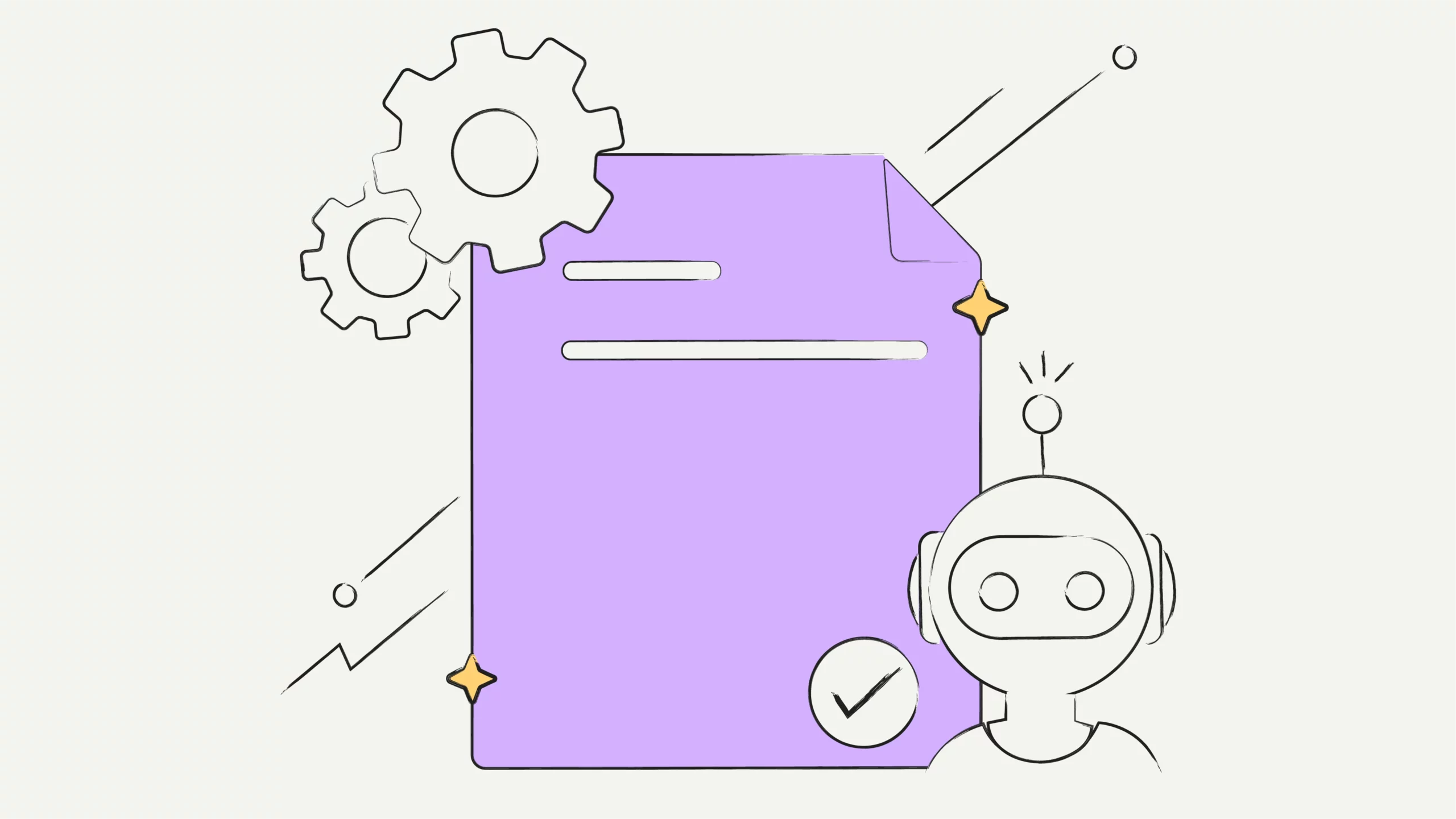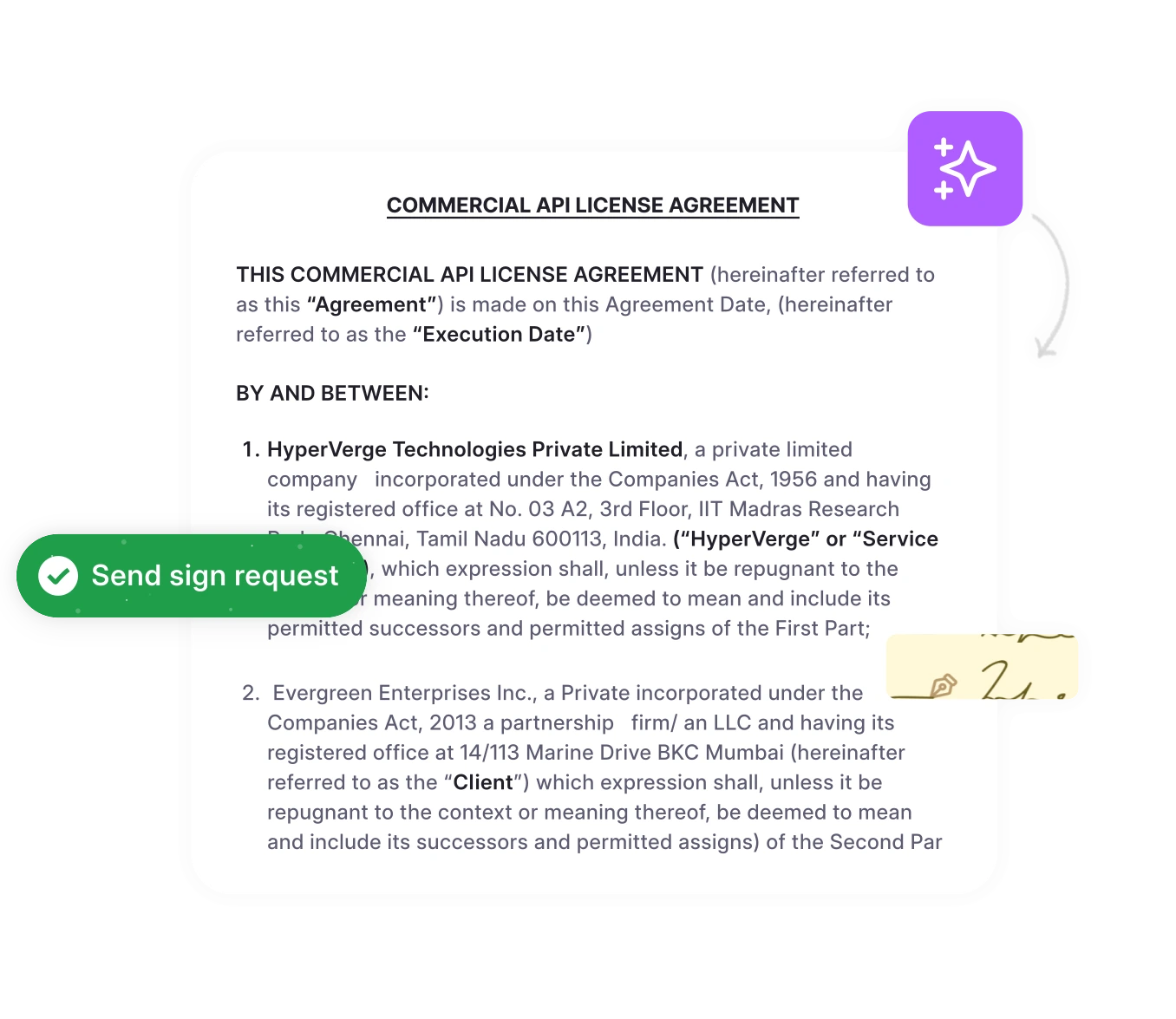Is your organization facing challenges in contract management processes?
Do you find it difficult to manage contract renewals using spreadsheets?
Are tight timelines and the involvement of multiple parties creating inefficiencies?
Precision and accuracy are critical for maximizing the value of your contracts. You need a streamlined process to manage, whether it be drafting, reviewing, negotiation, approval, execution, or renewal.
Research from Deloitte states that organizations adopting better contract management best practices help to achieve cost savings from 20 to 25 percent. Adopting these contract management best practices can optimize the workflow and improve compliance.
Let’s discuss all the best practices for contract management that help you establish an effective process for contract administration.
12 Best practices on contract management for your business
Here are the contract best practices that help you improve efficiency, reduce risks, and optimize your contract management process.
1. Centralize your contract repository
Managing contracts properly is only possible with centralized contract management through a centralized repository. Contracts undergo multiple stages, from negotiation to signing and approval.
Often, contracts get handled by various departments, stored in disparate IT systems, or even kept in physical filing cabinets. These manual processes result in inefficiency and also pose security risks.
Having a centralized contract repository:
Ensures all the involved parties have access to the same contract information.
Enables accurate tracking of amendments and updates for contract integrity.
Maintains an organized, searchable archive of contracts and related documents.
Integrates a control system with filters for quick contract access.
Allows real-time updates on contract statuses for better oversight.
Overall, a centralized contract repository helps improve efficiency and manage contracts.
2. Standardize templates for contract creation
Not having a standardized contract system results in human errors, risks, and a slow contract approval process.
Standardized contract templates streamline the contract initiation process. A template library avoids language inconsistency errors across all contracts. For service-based businesses, a comprehensive general services agreement template serves as an essential foundation.
CLM software solutions like HyperStart help you standardize contract creation with pre-approved templates and a clause library. Our software also allows you to create templates and add custom clauses according to governing laws and business requirements.
3. Customize the CLM solution to fit your specific requirements
Every business has unique processes, compliance requirements, and strategic goals. One-size-fits-all software may not address specific requirements such as unique workflow requirements, industry-specific requirements, or integration with other business software.
Organizations use multiple software such as CRM, ERP, and procurement software, and it can take time to ensure that these systems work well with CLM software.
On the other hand, each organization has a different or unique contract management process that standard CLM solutions cannot support.
Implementing CLM software that offers customization helps adjust functionalities to fit your business processes. This creates a frictionless data flow with a holistic view of contract-related activities.
Manage Your Contracts with HyperStart CLM 5x Faster
HyperStart CLM offers AI to auto-extract metadata from contracts and create contracts in just a few minutes. We have handled 1B+ documents so far.
4. Assemble a dedicated contract management team
Establishing a dedicated contract management team improves efficiency and consistency for larger organizations. The team helps with complex negotiations, compliance requirements, and ongoing management.
Contracts can be intricate and require a deep understanding to be appropriately managed. Mismanaged contracts can lead to issues such as:
Legal disputes
Financial loss
Reputational damage
So, forming a contract management team allows for more effective contract management on a large scale. This contract administration best practice allows an organization to improve operational efficiency and handle contractual obligations effectively.
5. Implement web-based CLM solutions
Web-based solutions offer accessibility and flexibility essential for today’s businesses. Web-based CLM platforms enable teams to access contracts and related data from anywhere.
Fragmented data across different departments leads to inefficiencies or errors. Additionally, a traditional on-premise contract management solution restricts access to office locations.
To resolve these challenges, web-based CLM software facilitates digital contract management by ensuring that contracts and related data are stored centrally and accessible anywhere and anytime.
6. Establish contract management KPIs
Implementing key performance indicators (KPIs) for contract management helps track performance and identify areas for improvement. For example, measuring the average time to sign a contract, the percentage of contracts renewed versus expired, and the rate of compliance with internal policies and external obligations.
KPIs are a bridge to ensure contracts align with business goals and objectives. Setting up KPIs should be directly linked to critical factors in contract management, such as cost savings, faster TAT, and compliance rates.
A modern CLM solution tracks contract performance to identify improvements and provides contract managers with a 360-degree view of the contract’s lifecycle.
7. Enhance contract reporting and analytics
Does your organization need more visibility, the complexity of data interpretation, or contract management risks?
Implementing contract analytics and reporting within your CLM process mitigates risks, drives efficiency, and delivers contract value.
Using the data captured in your CLM solution to generate insightful reports and analytics. These insights include:
Contract expiration reports
Obligation tracking
Spend analysis
Risk assessment
Contract review time
Regular contract reporting and analysis can help you identify bottlenecks, risks, and opportunities to unlock business potential.
CLM solutions offer advanced reporting capabilities, dashboards, and data visualization features that help to gain actionable insights from contract data.
8. Automate the contract management process
When contracts are managed manually, there are chances of errors, inefficiencies, and financial repercussions. Contract automation software helps you enhance contracting efficiency and accuracy, eliminate manual work, free up resources from repetitive tasks, and allocate them to higher-order work.
Within your contract management lifecycle, look for opportunities to automate tasks like contract creation, approval workflows, redlining, negotiations, obligation & renewal tracking, and contract risk analysis.
An AI-based contract management helps automate metadata extraction, redlining, and contract retrieval. This advanced functionality speeds up contract creation & review and ensures precise tracking of key obligations and deadlines.
Recently, Qapita chose HyperStart CLM to switch from manual to automated contract management. The company initially faced challenges like limited bandwidth and high contract volume while relying on a less responsive CLM provider. With HyperStart’s rapid implementation, Qapita streamlined its contract management processes. Here is one of the feedback shared by their company secretary.
Implementation was very smooth. Using the bulk upload feature, all contracts were integrated into the system within minutes. I was also able to see the AI extracted metadata on the tool immediately, which was impressive.

Mayuri Jaltare
Company Secretary at Qapita
9. Optimize your contract negotiation process
The manual redlining process involves excessive back-and-forth in negotiations and delays closures. AI-powered contract redlining replaces multiple email exchanges and calls so stakeholders can collaborate and review contracts 75% faster.
Contract lifecycle management software like HyperStart helps businesses redline, comment, and provide suggestions in real time quickly and faster in a single workspace.
10. Utilize electronic signatures for contracts
Traditionally, organizations relied on wet-ink signatures, which require physical presence and delayed closures. Today’s business environment calls for a more efficient solution.
To resolve these challenges, organizations are adopting electronic signatures. Digital signature solutions like eSign, AdobeSign, and DocuSign allow you to collect legally binding signatures faster. This digital process eliminates the need for paperwork and in-person meetings.
Adopting e-signatures speeds up and digitizes the signing step.
HyperStart CLM, for instance, integrates these electronic signature tools to digitize and automate electronic contract signing. It also offers hand-drawn, Aadhar, and OTP-based signing options. This approach allows businesses to accelerate contract execution and improve productivity while staying compliant.
11. Set up contract approval workflows
One of the CLM best practices is automating approval workflows.
Automating contract management approvals eliminates email communication and automates the follow-up process. No-code workflows with conditional logic, automated reminders, activity tracking, real-time editing, and e-sign integrations are handy solutions that help you agree contracts faster.
12. Establish better collaboration between all parties
Communicating via email can become tedious and overwhelming. When you are handling multiple contracts, chasing approvals, reviews, or signatures becomes especially cumbersome. Different parties involved may interpret messages differently, which leads to misunderstandings.
With a centralized system, scaling contract collaboration becomes simpler. This software solution helps all your teams stay on the same page without frequent context-switching.
Implement best practices to automate contract management
Following effective contract management techniques is important for business success. While implementing standardized processes and automated tracking leads to reduced risks, better compliance, and significant cost savings, failing to follow these practices results in missed deadlines, contract breaches, and financial losses. Therefore, businesses must prioritize good contract management practices to protect their interests.
HyperStart CLM software allows you to create, find, track, and agree contracts 10x faster. Khatabook and LeadSquared are some recognized organizations that use our CLM software to align and automate all contract management processes.
HyperStart CLM helps you with every stage of contract lifecycle management, from drafting to signing to storing and tracking. Here is a list of benefits you get from HyperStart CLM:
2-min
Contract creation
80%
Faster contract TAT
2-sec
Contract retrieval
Store all your contracts in a single place
Never miss a renewal again
Execute contracts in just 2 clicks
Follow these best practices for contract management
In this blog, we discussed the best practices of contract lifecycle management, such as centralizing contract data, using standardized templates, and automating workflows to streamline contract management. By implementing these best practices, you can minimize risks, improve efficiency, and drive better outcomes from contract agreements.
HyperStart CLM software automates the entire contract management lifecycle. Get a first-cut review of the SLAs, MSAs, or other contract agreements with 95% accuracy within a few seconds with AI-powered redlining. Additionally, you can integrate HyperStart with Google Drive, Salesforce, and OneDrive. Book a free demo with HyperStart.












